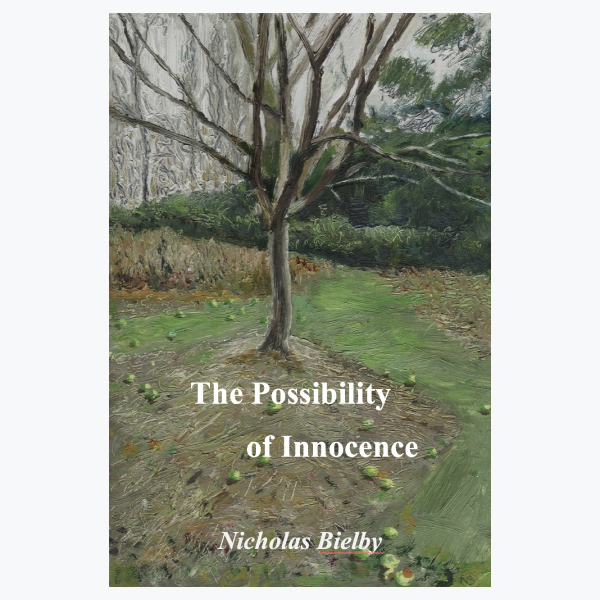
The Possibility of Innocence
Nicholas Bielby
The present book engages again with the themes in The Naming of Things (Poetry Salzburg, 2015): love, loss, the trajectories of our lives and what it is possible to believe.
From a northern grammar school, Nicholas Bielby went to Cambridge to study English under F. R. Leavis, but later, in frustration, changed to Moral Sciences (philosophy). He taught in India and Nigeria before returning home to teach in primary school and then teacher education. After retiring from Leeds University, he was editor of the poetry magazine, Pennine Platform, for 15 years.
He has written three books on reading and has acted as a consultant to the Government and to several major publishers. In addition, he has published a book on early Tudor poetry and has contributed to other books, including The Edinburgh Companion to the Bible and the Arts, (2014). He has written five books of poetry and has won numerous prizes in competitions, including the Arvon International and New Poetry.
Old Man Na'pi and the First Mother and Child
adapted from a Blackfoot creation story
After Na'pi modelled them from clay
and spoke the word of life to make them breathe,
first off, the Woman asked him, "Will we live
forever? Or will there be an end to it - we die?"
"I had not thought about it. Yes, we must
decide. If what I throw into the river
floats, then all of you will live forever.
But if it sinks, you will return to dust."
Then he bent down, picked up and threw a bone
into the river, and it floated there.
"No," said the woman, "I will choose. We are
the ones to live or die." She chose a stone
and said, "If this stone floats, then we will live.
And if it sinks, we people all will die,
so, while we live, knowing that this must be,
we may learn pity, share each other's grief."
The woman threw the stone. It sank. Na'pi
then spoke. "As you have chosen, it shall be.
Your life shall have an end and you will die.
You will know endless sorrow. So shall I."
Reliquary: the Amanti of Valdaro
Here in Mantova (where Romeo
bought physic to unlock the gyves
of love and death, the knottiness of lives)
two teenage lovers’ skeletons
lie lip to lip,
embracing; legs drawn up,
entwined – a dusty fossil nest of bones.
They’ve slept thus for six thousand years or so.
Now their fine privacy’s displayed
to the gawp of common view, betrayed
by prurient, irreligious times, and time.
Yet, under the spotlight, like a sun
parching the deserts of eternity,
they still remain a talisman,
a bracelet of bright bone;
and we, their audience, sense
a commonality
with our experience,
and find in them a paradigm:
we’re born, we die;
and in between,
we find our comfort as we can.
Yes, they were young and young love is
appalling in its innocence. And yes,
they died before they knew the need to grieve
all that time undoes.
Yet still we set up love
against inevitable death -
not that it’s stronger but because
it offers consolation as we weave
our fears and feelings in a single wreath.
My love, although we are no longer young
and know it’s not for long,
our comfort’s in
the feel of skin
as those young lovers’ was.
Though truth to tell,
each touch is both hail and farewell.
© 2019 Nicholas Bielby